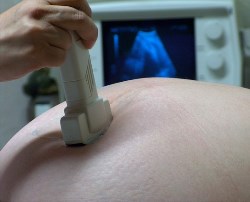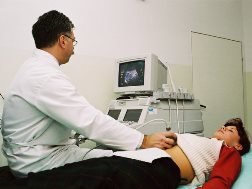How to Choose the Right Sonogram Technician Training Program near Watkins Iowa
 Now that you have made a decision to pursue an ultrasound technician degree near Watkins IA, the next step is to begin the procedure of picking a college. First, you have to find the right program that will furnish the proper education to become a qualified professional. And because a number of states do require that sonographers be either licensed or certified, depending on your residence you may also need to be prepared to pass a certification or licensing examination. So it’s extremely important that you investigate each college so that you can evaluate and compare your alternatives. But just where does one start? Most students will begin by looking for colleges that are within commuting distance of their residences and then by comparing tuition. Of course location and cost should be taken into account when arriving at a decision, but there are additional important factors as well. For example, if the ultrasound technician schools have earned accreditation or if they sponsor internships. These and additional qualifications will be addressed more in detail later in this article. But to start with, let’s review what a sonogram tech does and the credentials and online education options that are available.
Now that you have made a decision to pursue an ultrasound technician degree near Watkins IA, the next step is to begin the procedure of picking a college. First, you have to find the right program that will furnish the proper education to become a qualified professional. And because a number of states do require that sonographers be either licensed or certified, depending on your residence you may also need to be prepared to pass a certification or licensing examination. So it’s extremely important that you investigate each college so that you can evaluate and compare your alternatives. But just where does one start? Most students will begin by looking for colleges that are within commuting distance of their residences and then by comparing tuition. Of course location and cost should be taken into account when arriving at a decision, but there are additional important factors as well. For example, if the ultrasound technician schools have earned accreditation or if they sponsor internships. These and additional qualifications will be addressed more in detail later in this article. But to start with, let’s review what a sonogram tech does and the credentials and online education options that are available.
Click Here to Get Free Information on Ultrasound Technician Schools!
Ultrasound Tech Work Description
 There are several professional titles for ultrasound techs (technicians). They are also referred to as sonogram techs, diagnostic medical sonographers (or just sonographers) and ultrasound technologists. No matter what their title is, they all have the same primary job function, which is to implement diagnostic ultrasound procedures on patients. Although a number of techs practice as generalists there are specialties within the field, for instance in pediatrics and cardiology. Most work in Watkins IA clinics, hospitals, private practices or outpatient diagnostic imaging centers. Routine daily work functions of an ultrasound tech can involve:
There are several professional titles for ultrasound techs (technicians). They are also referred to as sonogram techs, diagnostic medical sonographers (or just sonographers) and ultrasound technologists. No matter what their title is, they all have the same primary job function, which is to implement diagnostic ultrasound procedures on patients. Although a number of techs practice as generalists there are specialties within the field, for instance in pediatrics and cardiology. Most work in Watkins IA clinics, hospitals, private practices or outpatient diagnostic imaging centers. Routine daily work functions of an ultrasound tech can involve:
- Maintaining records of patient case histories and specifics of each procedure
- Counseling patients by explaining the procedures and answering questions
- Prepping the ultrasound machines for testing and then cleaning and re-calibrating them
- Moving patients to treatment rooms and ensuring their comfort
- Utilizing equipment while minimizing patient exposure to sound waves
- Assessing results and identifying need for further testing
Sonographers must routinely gauge the safety and performance of their equipment. They also are held to a high professional standard and code of conduct as medical practitioners. So as to maintain that level of professionalism and stay current with medical knowledge, they are mandated to enroll in continuing education training on an ongoing basis.
Sonogram Technician Degree Programs Available
 Sonogram tech students have the choice to earn either an Associate or a Bachelor’s Degree. An Associate Degree will generally take around 18 months to 2 years to complete based upon the course load and program. A Bachelor’s Degree will take longer at up to four years to finalize. Another option for those who have previously earned a college degree is a post graduate certificate program. If you have earned a Bachelor’s Degree in any major or an Associate Degree in a relevant medical field, you can enroll in a certificate program that will take just 12 to 18 months to finish. Something to keep in mind is that the majority of ultrasound technician programs do have a practical training element as a portion of their curriculum. It often may be fulfilled by entering into an internship program which numerous colleges set up with Watkins IA hospitals and clinics. When you have graduated from one of the degree or certificate programs, you will then need to comply with the certification or licensing prerequisites in Iowa or whichever state you decide to work in.
Sonogram tech students have the choice to earn either an Associate or a Bachelor’s Degree. An Associate Degree will generally take around 18 months to 2 years to complete based upon the course load and program. A Bachelor’s Degree will take longer at up to four years to finalize. Another option for those who have previously earned a college degree is a post graduate certificate program. If you have earned a Bachelor’s Degree in any major or an Associate Degree in a relevant medical field, you can enroll in a certificate program that will take just 12 to 18 months to finish. Something to keep in mind is that the majority of ultrasound technician programs do have a practical training element as a portion of their curriculum. It often may be fulfilled by entering into an internship program which numerous colleges set up with Watkins IA hospitals and clinics. When you have graduated from one of the degree or certificate programs, you will then need to comply with the certification or licensing prerequisites in Iowa or whichever state you decide to work in.
Online Ultrasound Tech Degrees
 As earlier discussed, nearly all sonogram tech colleges have a practical component to their programs. So although you can earn a degree or certificate online, a significant part of the training will be either carried out in an on-campus lab or at an approved off-campus medical care provider. Practical training can typically be fulfilled through an internship at a local Watkins IA hospital, outpatient clinic or family practice. But the remainder of the classes and training may be attended online in your Watkins home. This is especially convenient for those students that continue working while obtaining their degrees. In addition online programs are many times less expensive than traditional options. Costs for commuting and study materials may be reduced also. But just as with any sonographer school you are considering, check that the online school you ultimately pick is accredited. Among the most highly regarded accrediting organizations is the Commission on Accreditation of Allied Health Education Programs (CAAHEP). Accreditation is especially important for licensing, certification and finding employment (more on accreditation later). So if you are disciplined enough to learn away from the classroom in the comfort of your own home, then an online degree could be the right option for you.
As earlier discussed, nearly all sonogram tech colleges have a practical component to their programs. So although you can earn a degree or certificate online, a significant part of the training will be either carried out in an on-campus lab or at an approved off-campus medical care provider. Practical training can typically be fulfilled through an internship at a local Watkins IA hospital, outpatient clinic or family practice. But the remainder of the classes and training may be attended online in your Watkins home. This is especially convenient for those students that continue working while obtaining their degrees. In addition online programs are many times less expensive than traditional options. Costs for commuting and study materials may be reduced also. But just as with any sonographer school you are considering, check that the online school you ultimately pick is accredited. Among the most highly regarded accrediting organizations is the Commission on Accreditation of Allied Health Education Programs (CAAHEP). Accreditation is especially important for licensing, certification and finding employment (more on accreditation later). So if you are disciplined enough to learn away from the classroom in the comfort of your own home, then an online degree could be the right option for you.
Questions to Ask Sonogram Tech Colleges
 As soon as you have decided on which certificate or degree that you would like to obtain, you can start the procedure of reviewing and comparing sonogram tech schools. You will first probably want to choose whether you will attend classes online or travel to a college campus in the Watkins IA area. Obviously location will be critical if you select the latter, and the cost of tuition no doubt will be an initial qualification also. But there are additional factors that you must also take into account, such as if the colleges are accredited and if they offer internship programs. Therefore in order to carry out your due diligence so that you can make your ultimate selection, below are some questions that you may want to ask each ultrasound tech college prior to making a decision.
As soon as you have decided on which certificate or degree that you would like to obtain, you can start the procedure of reviewing and comparing sonogram tech schools. You will first probably want to choose whether you will attend classes online or travel to a college campus in the Watkins IA area. Obviously location will be critical if you select the latter, and the cost of tuition no doubt will be an initial qualification also. But there are additional factors that you must also take into account, such as if the colleges are accredited and if they offer internship programs. Therefore in order to carry out your due diligence so that you can make your ultimate selection, below are some questions that you may want to ask each ultrasound tech college prior to making a decision.
Are the Sonogram Tech Colleges Accredited? The majority of ultrasound technician schools have received some form of accreditation, whether regional or national. Even so, it’s still important to make sure that the program and school are accredited. Among the most highly respected accrediting agencies in the field of sonography is the Joint Review Committee on Education in Diagnostic Medical Sonography (JRC-DMS). Programs earning accreditation from the JRC-DMS have undergone an extensive assessment of their instructors and course materials. If the college is online it can also earn accreditation from the Distance Education and Training Council, which targets distance or online learning. All accrediting agencies should be recognized by the U.S. Department of Education or the Council on Higher Education Accreditation. Besides ensuring a premium education, accreditation will also assist in securing financial aid and student loans, which are often not offered for non-accredited schools. Accreditation may also be a pre-requisite for certification and licensing as required. And many Watkins IA employers will only hire a graduate of an accredited program for entry-level openings.
Are Internship Programs Sponsored? Find out if the ultrasound tech programs you are interested in have associations with Watkins IA clinics or hospitals for internship programs. Internships are not only a great way to obtain hands on training in a clinical environment, they are also a means to fulfill the practical training requirement for most programs. As an ancillary benefit, they may help students and graduates develop professional relationships in the Watkins health care community and assist with job placement.
Is Job Placement Help available? You will undoubtedly wish to hit the ground running after graduation, but finding that initial job in a new profession can be difficult without support. Find out if the sonographer schools you are assessing have job assistance programs and what their placement rates are. High and rapid placement rates are a good indication that the schools have sizable networks and great relationships with Iowa healthcare employers. It also substantiates that their students are well regarded and sought after.
Where is the College Located? For a number of students, the school they pick will have to be within commuting distance of their Watkins IA residence. Students who have chosen to attend online classes naturally will not have to worry themselves with the location of the campus. However, the availability of area internships will be of concern. Something to bear in mind is that if you choose to enroll in a program that is out of state or even out of your local area, you might need to pay a higher tuition. State colleges typically charge higher tuitions for out of state residents. And community colleges frequently charge a higher tuition for those students that don’t reside within their districts.
How Large are the Classes ? Unless you are the kind of person that prefers to sit way in the back of class or hide in the crowd, you will likely prefer a small class size. Smaller classes allow for more individual participation and personalized instruction. Ask the schools you are researching what the typical student to teacher ratio is for their classes. If practical you may want to monitor one or more classes before making your final decision. This will also give you a chance to speak with several of the instructors and students to get their perspectives regarding the sonogram tech program as well.
Can the College Accommodate your Schedule? And finally you must verify that the ultrasound tech program you finally pick can provide the class schedule you need. This is especially important if you decide to continue working while attending classes. If you must schedule night or weekend classes in the Watkins IA area, confirm that they are offered. If you can only enroll on a part-time basis, find out if that is an option and how many courses or credit hours you would need to enroll in. Also, find out what the protocol is for making up any classes that you may miss as a result of work, illness or family emergencies.
Ultrasound Technician Schools Watkins Iowa
 Picking the right ultrasound technician degree or certificate program is an important first step to commencing a gratifying new profession delivering diagnostic services to patients. Ultrasound technician programs require that you have a high school diploma or a GED. Apart from satisfying academic standards, you should be in at least reasonably good physical condition, capable of standing for prolonged periods and able to routinely lift weights of fifty pounds or more, as is it often necessary to position patients and move heavy machinery. Other desirable talents include technical aptitude, the ability to keep collected when faced with an angry or anxious patient and the ability to converse clearly and compassionately. You originally came to this website due to an interest in Ultrasound Technician Schools and wanting more information on Sonogram Technician Programs. However, as we have covered in this post, there are a number of questions that you need to ask each college you are considering. This is true whether you choose an online degree or drive to the school campus to attend classes. And by asking the proper questions so that you can evaluate each college, you can narrow down your options until you are left with the best program for your education. And with the right training, dedication and motivation to succeed, you can accomplish your objective to work as an ultrasound technologist in Watkins IA.
Picking the right ultrasound technician degree or certificate program is an important first step to commencing a gratifying new profession delivering diagnostic services to patients. Ultrasound technician programs require that you have a high school diploma or a GED. Apart from satisfying academic standards, you should be in at least reasonably good physical condition, capable of standing for prolonged periods and able to routinely lift weights of fifty pounds or more, as is it often necessary to position patients and move heavy machinery. Other desirable talents include technical aptitude, the ability to keep collected when faced with an angry or anxious patient and the ability to converse clearly and compassionately. You originally came to this website due to an interest in Ultrasound Technician Schools and wanting more information on Sonogram Technician Programs. However, as we have covered in this post, there are a number of questions that you need to ask each college you are considering. This is true whether you choose an online degree or drive to the school campus to attend classes. And by asking the proper questions so that you can evaluate each college, you can narrow down your options until you are left with the best program for your education. And with the right training, dedication and motivation to succeed, you can accomplish your objective to work as an ultrasound technologist in Watkins IA.
More Ultrasound Locations in Iowa
Industrial archaeology
Industrial archaeology (IA) is the systematic study of material evidence associated with the industrial past.[1] This evidence, collectively referred to as industrial heritage, includes buildings, machinery, artifacts, sites, infrastructure, documents and other items associated with the production, manufacture, extraction, transport or construction of a product or range of products. The field of industrial archaeology incorporates a range of disciplines including archaeology, architecture, construction, engineering, historic preservation, museology, technology, urban planning and other specialties, in order to piece together the history of past industrial activities.[2] The scientific interpretation of material evidence is often necessary, as the written record of many industrial techniques is often incomplete or nonexistent. Industrial archaeology includes both the examination of standing structures and sites that must be studied by an excavation.[3]
The field of industrial archaeology developed during the 1950s in Great Britain, at a time when many historic industrial sites and artifacts were being lost throughout that country, including the notable case of Euston Arch in London. In the 1960s and 1970s, with the rise of national cultural heritage movements, industrial archaeology grew as a distinct form of archaeology, with a strong emphasis on preservation, first in Great Britain, and later in the United States and other parts of the world. During this period, the first organized national industrial heritage inventories were begun, including the Industrial Monuments Survey in England and the Historic American Engineering Record in the United States.[4] Additionally, a number of regional and national IA organizations were established, including the North American-based Society for Industrial Archeology in 1971, and the British-based Association for Industrial Archaeology in 1973. That same year, the First International Conference on the Conservation of Industrial Monuments was held at Ironbridge in Shropshire.[5] This conference led, in 1978, to the formal establishment of The International Committee for the Conservation of the Industrial Heritage (commonly known as "TICCIH") as a worldwide organization for the promotion of industrial heritage.[6] The members of these and other IA groups are generally a diverse mix of professionals and amateurs who share a common interest in promoting the study, appreciation and preservation of industrial heritage resources.[2]
Industrial archaeology covers a wide range of topics, from early ironworks and water-powered mills to large modern factories, as well as ancillary sites and structures such as worker housing, warehouses and infrastructure. IA topics generally fall into one of four categories:
Business Results 1 - 10 of 2




